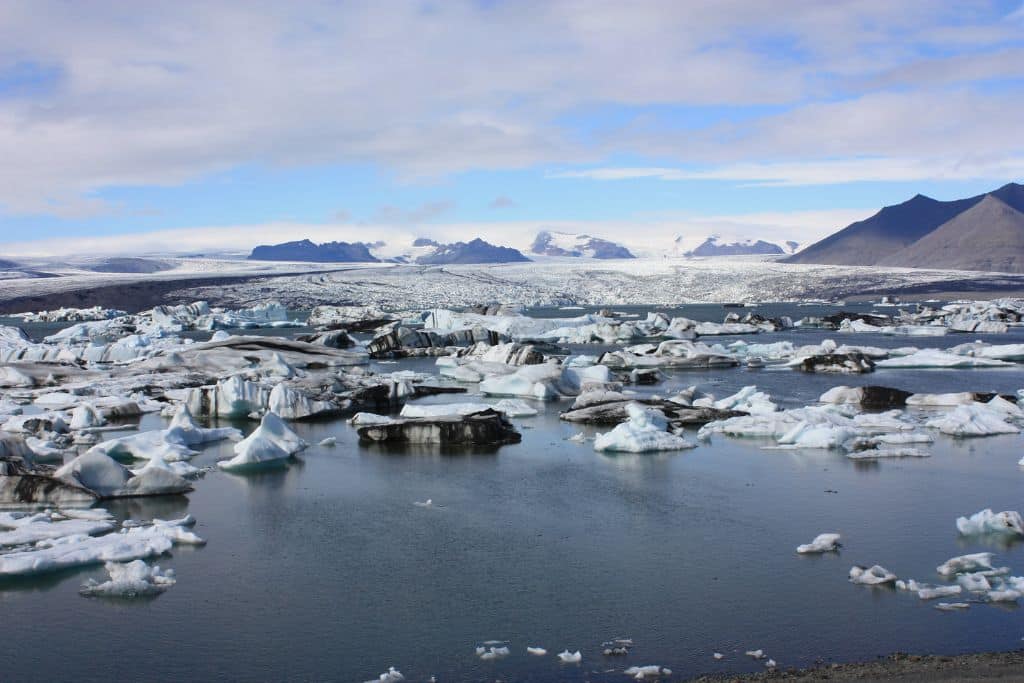Five of the past six years have witnessed the most rapid glacier retreat on record, while the 2022-2024 period witnessed the largest three-year loss of glacier mass on record, according to the World Meteorological Organization.
—
Glaciers once believed to last eternally will likely not survive the 21st century, the United Nations has warned in occasion of the world’s first international day in recognition of their importance.
Glaciers are indeed disappearing at an alarming rate, with five of the past six years witnessing the most rapid glacier retreat and the 2022-2024 witnessing the largest three-year loss of glacier mass in recorded history. This is what emerged from the World Meteorological Organization’s (WMO) latest State of the Global Climate Report published earlier this week, which painted a grim picture of Earth’s condition.
Over the past 18 years, the Arctic has witnessed its 18 lowest sea-ice extents on record, indicative of a concerning trend in the region, according to the report. Similarly, the Antarctic has experienced its three lowest ice extents within the last three years.
Glaciers – separate from the continental ice sheets in Greenland and Antarctica – have lost a total of more than 9,000 billion tons since records began in 1975, the equivalent of an ice block the size of Germany and with a thickness of 25 meters, as indicated by the World Glacier Monitoring Service. At this rate, the organization warns that what used to be called glaciers’ “eternal ice” will disappear within the current century.
Preserving Glaciers Is an ‘Environmental and Economic Necessity‘
World Day for Glaciers, celebrated globally for the first time today, aims to “sound the alarm” about the consequences of glacier melt on economies, ecosystems, and communities around the world.
More than 275,000 glaciers worldwide store about 70% of the world’s freshwater supply. This stored water is gradually released throughout the year, ensuring a consistent flow in rivers and streams that support various ecosystems and human activities like agriculture.
Glaciers also play a critical role in regulating global climate by reflecting sunlight back into space, thus helping to cool the planet, and support unique ecosystems, fostering biodiversity and providing habitats for various species.
The melting of glaciers and polar ice sheets is also a leading cause of sea level rise. The global mean sea level reaching its peak last year since satellite recordings began in 1993, rising at twice the rate between 2015 and 2024 compared to the 1993-2002 period, from 2.1 mm annually to 4.7 mm per year, according to this week’s WMO report.
Accelerating sea level rise could displace one in every 10 people on the planet, triggering massive economic, social, and cultural disruptions worldwide, UN Secretary-General Antonio Guterres warned in 2023. He described the predicted dislocation of nearly 900 million people living in low-lying coastal areas as a “mass exodus of entire populations on a biblical scale” that would drive “ever-fiercer competition for fresh water, land and other resources.”
All these reasons make glacier preservation “not just an environmental, economic and societal necessity [but] a matter of survival,” WMO Secretary-General Celeste Saulo said.
This story is funded by readers like you
Our non-profit newsroom provides climate coverage free of charge and advertising. Your one-off or monthly donations play a crucial role in supporting our operations, expanding our reach, and maintaining our editorial independence.
About EO | Mission Statement | Impact & Reach | Write for us















